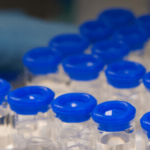
Pfizer, with corporate offices in New York, and BioNTech (Biopharmaceutical New Technologies), headquartered in Germany, have announced they have begun human clinical trials for a COVID-19 vaccine in both the United States and Germany.
In the United States, the first volunteers will be healthy adults between 18 and 55. Once those volunteers have shown that the initial dose has proven safe and able to generate an immune response to COVID-19, older adults between 65 and 85 years old will begin trials. Up to 360 healthy subjects will be involved at the NYU Grossman School of Medicine and the University of Maryland School of Medicine, with the University of Rochester Medical Center/Rochester Regional Health and Cincinnati Children’s Hospital Medical Center to begin enrollment shortly.
In Germany, the trials began last week with 12 subjects, and it is expanding to as many as 200 participants.
Pfizer and BioNTech’s development program includes four vaccine candidates, each representing a different combination of mRNA (messenger RNA ) format and target antigen. The novel design of the trial allows for the evaluation of the various mRNA candidates simultaneously in order to identify the safest and potentially most efficacious candidate in a greater number of volunteers, in a manner that will facilitate the sharing of data with regulatory authorities in real time.
If the trials prove successful and a vaccine gains regulatory approvals, Pfizer will manufacture the vaccine at its locations in Massachusetts, Michigan and Missouri and, and Puurs, Belgium, with additional sites to be determined later. BioNTech plans to use production sites in Mainz and Idar-Oberstein, Germany.
If trials are successful, and the companies gain regulatory approvals, the companies say a viable vaccine could be available by the Fall with hundreds of millions of doses available in 2021.
Rather than working with the actual virus, most companies are working with the DNA or the RNA of the virus, which has made the process faster than usual. Making vaccines using DNA or RNA is fairly new, and the FDA and USDA have approved those types of vaccines for veterinary use and previous trials have shown they are safe in humans.
On April 30, Oxford University and AztraZeneca announced human trials for a potential vaccine, and there are several other human trials starting.
The World Health Organization says there are at least 100 vaccines under development that may potentially address COVID-19. All experts express caution since COVID-19 is a novel coronavirus and both the disease and the techniques being used to develop vaccines are new. However, on April 24, 2020, leaders from 40 countries and private organizations from around the world gathered to pledge mutual support for vaccine development. Melinda Gates from the Bill and Melinda Gates Foundation participated and pledged $100 Million towards vaccine development, but no officials from the United States participated.
Click here for the Pfizer fact page about vaccines, including the potential COVID-19 vaccines.
Today there are no vaccines nor approved treatments for COVID-19.